GameZone GZONE Tier Calculator
Calculate Your GZONE Staking Tier
Enter your GZONE token balance to determine your current staking tier and allocation benefits.
Your Results
Tier Benefits Overview
| Tier | Minimum Staked GZONE | Pool Weight | Benefits |
|---|---|---|---|
| Tier 1 | 0 - 9,999 | 1x | Basic IDO access |
| Tier 2 | 10,000 - 49,999 | 2x | Higher allocation, early whitelist |
| Tier 3 | 50,000 - 199,999 | 4x | Premium support, fee discounts |
| Tier 4 | 200,000+ | 8x | Exclusive airdrops, governance rights |
TL;DR
- GameZone is a GameFi‑focused launchpad that runs on multiple blockchains and is backed by BlueZilla.
- The GZONE token uses a 7% deflationary fee (2% burned, 5% to stakers) and trades around $0.008.
- No official airdrop has been announced yet, but community‑driven snapshots and staking thresholds are common ways to qualify.
- To participate in the next IDO, you’ll need to stake GZONE, pass the tier check, and connect a supported wallet (Polygon, BSC, Solana, Ethereum).
- Price forecasts range from $0.002-$0.003 (conservative) to $1.43‑$2.50 (optimistic) for 2025‑2026.
What is GameZone?
When it comes to blockchain gaming, GameZone is a launchpad platform built specifically for GameFi and NFT projects, operating under the BlueZilla ecosystem since its 2021 debut. The platform offers Initial Game Offerings (IGOs), Initial NFT Offerings (INOs), and a marketplace where creators can list in‑game items with low fees. Its tier‑based allocation model gives larger stakers higher chances of securing spots in hot new games like Katana Inu, Galactic Quadrant, and Velhalla.
Introducing the GZONE Token
The native utility token GZONE powers the GameZone ecosystem, granting voting rights, staking rewards, and access to premium launchpad tiers. As of October2025, GZONE trades at roughly $0.008 with a 24‑hour volume of $18,874 and a circulating market cap of $1.19million. The total supply equals the circulating supply - 419,671,821.567 tokens - while the hard cap sits at 1billion tokens.
Deflationary Tokenomics Explained
GameZone’s tokenomics are deliberately deflationary. Every sell order incurs a 7% fee: 2% of the transferred amount is permanently burned, and the remaining 5% is redistributed to stakers as rewards. Early unstaking can also trigger a penalty up to 25%, discouraging short‑term flips. This model aims to shrink supply over time while rewarding long‑term holders.
How the IDO Works
The original IDO took place in September2021, raising $112,500 after a private sale that collected $110,000. Since then, GameZone has secured a $1million strategic round, bringing total funding to $1.22million. The next IDO - the one most users are eyeing - will follow the same tiered allocation logic:
- Stake GZONE to qualify for a specific tier (Tier1‑4).
- Pass the KYC check required by the partner exchange.
- Connect a supported wallet (MetaMask, Trust Wallet, Phantom, etc.) on the chosen blockchain.
- Allocate your purchase amount according to the pool weight tied to your tier.
Projects listed on GameZone’s launchpad are vetted by BlueZilla, which provides legal, marketing, and development support. This reduces risk for investors and gives projects a solid go‑to‑market plan.
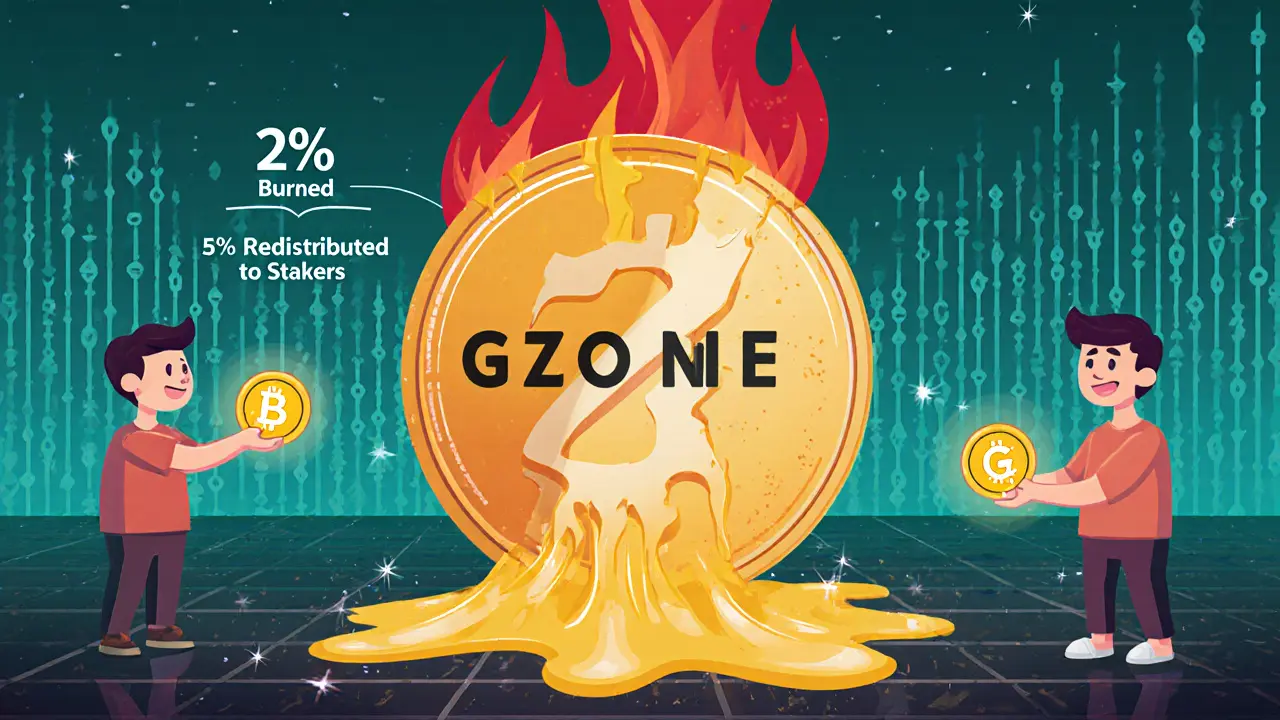
Airdrop Status: Is There One?
Searches through official channels, community Telegrams, and the GameZone blog show no confirmed airdrop for GZONE or any upcoming GameZone‑specific token distribution. However, the ecosystem frequently runs “snapshot airdrops” where users who held a minimum amount of GZONE on a certain date received a small reward in a partner’s token. To stay ready:
- Keep a minimum of 10,000GZONE in a non‑custodial wallet.
- Follow GameZone’s official Twitter and Discord for real‑time announcements.
- Enable push notifications for snapshot alerts on platforms like Dune Analytics.
Even without a formal airdrop, these community‑driven snapshots can be lucrative, especially when the partnered token experiences a price surge.
Staking, Rewards, and Tier Benefits
Staking GZONE not only grants you a share of the 5% fee pool but also determines your launchpad tier. The tier structure looks like this:
| Tier | Minimum Staked GZONE | Pool Weight | Benefits |
|---|---|---|---|
| Tier1 | 0‑9,999 | 1x | Basic IDO access |
| Tier2 | 10,000‑49,999 | 2x | Higher allocation, early whitelist |
| Tier3 | 50,000‑199,999 | 4x | Premium support, fee discounts |
| Tier4 | 200,000+ | 8x | Exclusive airdrops, governance rights |
The higher your tier, the larger your slice of the IDO pool and the more likely you are to snag a spot in high‑demand game launches.
Current Market Outlook
Technical indicators paint a bearish picture: the 14‑day RSI sits at 15.56 (deeply oversold) and the token trades below its 50‑day ($0.012) and 200‑day ($0.0229) SMAs. The Fear & Greed Index is 26, signalling fear among traders. Yet community sentiment remains bullish - over 90% of poll voters on tracking sites are optimistic about the long‑term vision.
Price forecasts diverge sharply. Optimistic analysts peg an average 2025 price of $1.43 with peaks near $2.50, citing upcoming partnerships and increased GameFi adoption. Conservative models maintain a range of $0.002‑$0.003, reflecting recent market corrections. Investors should weigh both scenarios and consider the token’s deflationary mechanics when sizing positions.
How to Get Involved Right Now
If you want to be ready for the next IDO or a surprise airdrop, follow these steps:
- Buy GZONE on a reputable DEX (Uniswap, PancakeSwap, or Raydium) and transfer it to a non‑custodial wallet.
- Stake the tokens on the official GameZone staking portal. Keep an eye on the “tier calculator” to see where you land.
- Join GameZone’s Discord and Telegram channels. Enable notification alerts for “Snapshot” and “Airdrop” keywords.
- Verify your KYC on the partner exchange once the IDO registration opens.
- When the IDO goes live, connect your wallet, allocate the amount allowed by your tier, and confirm the transaction.
Staying active in the community not only improves your chances of receiving a surprise airdrop but also gives you early insight into upcoming game launches.
Frequently Asked Questions
Is there an official GameZone airdrop scheduled?
No confirmed airdrop has been announced by GameZone. The team occasionally runs snapshot‑based rewards, so keep your GZONE holdings above the minimum threshold and monitor official channels for any surprise drops.
How does the 7% sell fee affect my investment?
When you sell GZONE, 2% is burned forever, reducing total supply, while 5% is redistributed to all stakers as rewards. This mechanism benefits long‑term holders and can help offset price volatility.
What blockchains does GameZone support for IDOs?
GameZone runs on Polygon, Binance Smart Chain, Solana, and Ethereum. The specific chain for each IDO is announced ahead of the sale.
Can I participate in an IDO without staking GZONE?
Staking is required to qualify for a tier and therefore for any allocation. Non‑stakers are placed in Tier0, which receives no slice of the pool.
Where can I find the most up‑to‑date IDO schedule?
The official GameZone website and its Discord #ido‑announcements channel provide real‑time dates, token sale sizes, and KYC links.
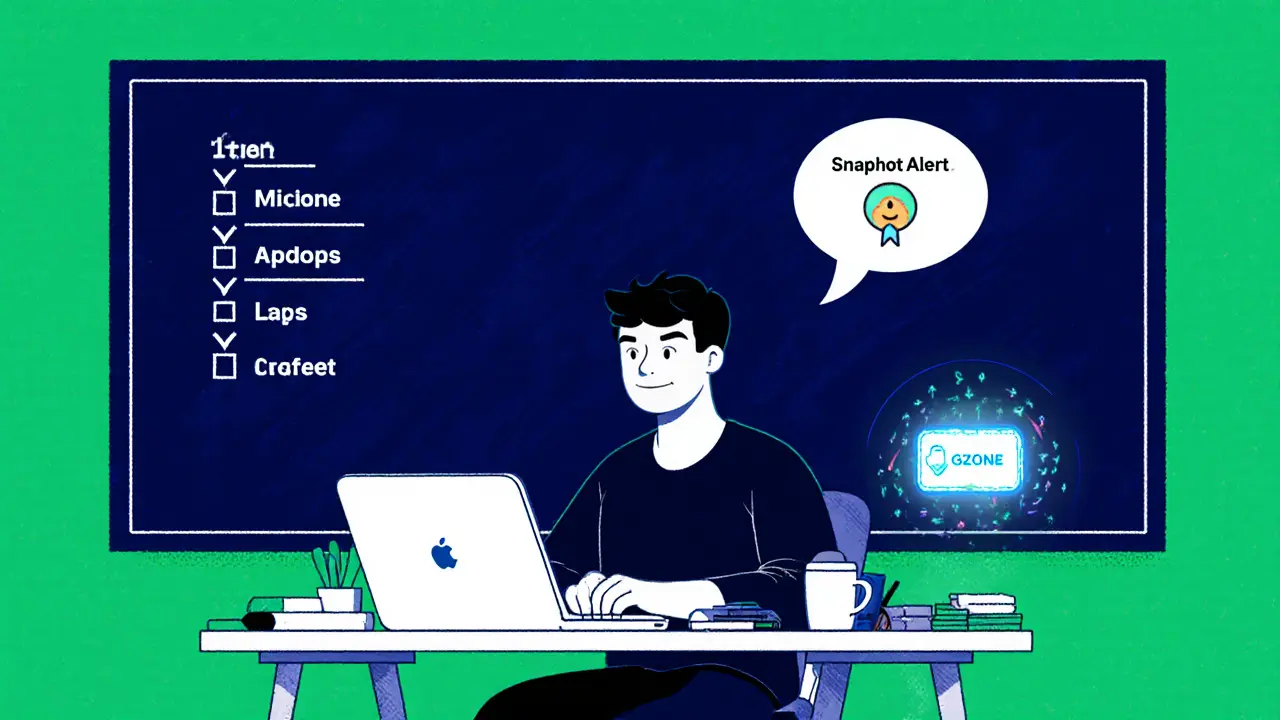
Key Takeaways
GameZone combines a multi‑chain launchpad with a deflationary token that rewards long‑term holders. While no formal airdrop is on the horizon, staying staked and active in the community positions you for any surprise rewards. The next IDO will follow the tiered allocation model, so aim for a higher tier by increasing your GZONE stake. Finally, keep an eye on price forecasts and technical indicators - the token is currently oversold, which could present a buying opportunity for risk‑tolerant investors.
For the most current data, always check the official GameZone dashboard, reputable DEX aggregators, and major tracking sites. Happy gaming and happy investing!






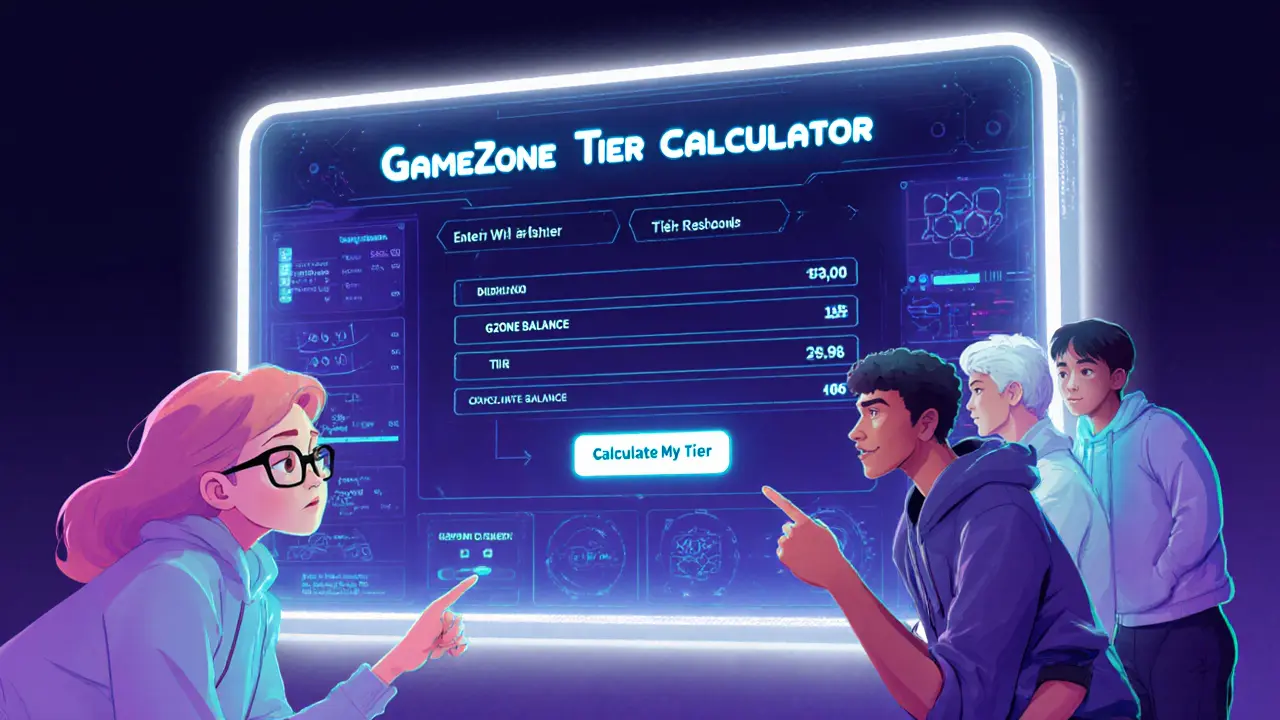
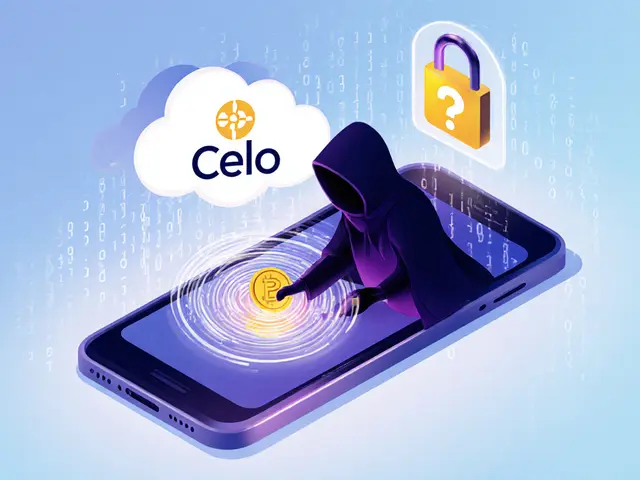
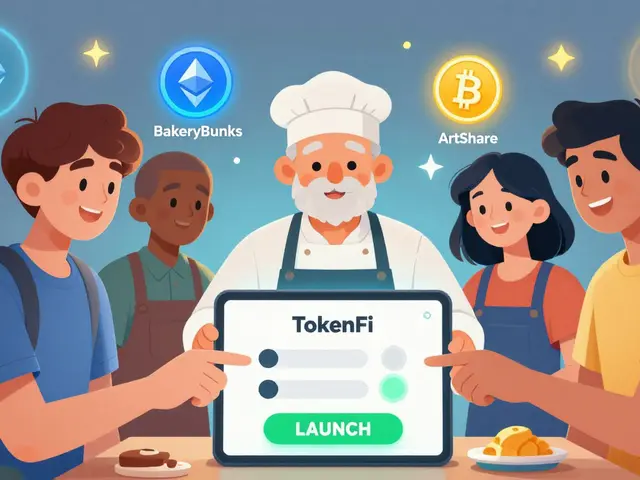
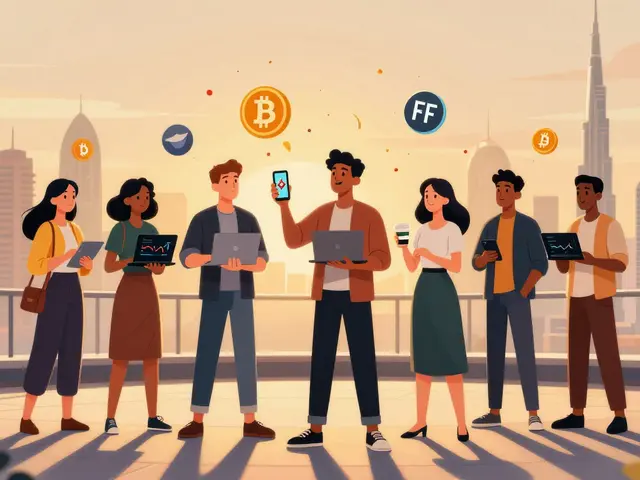
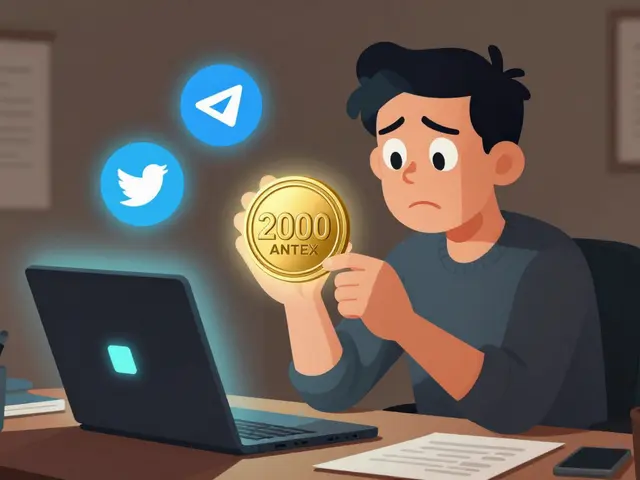
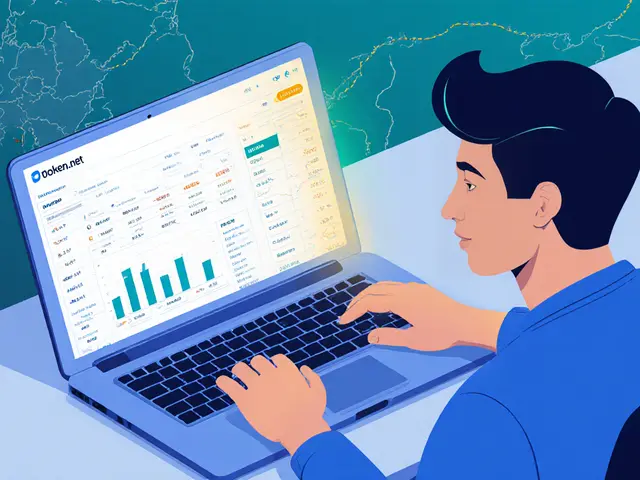
People Comments
Yeah, because staking tokens is the pinnacle of financial sophistication.
GameZone tries to dress up a simple deflationary token as a revolutionary ecosystem, but the veneer quickly fades. The hype about multi‑chain IDOs is nothing more than a marketing ploy to lure naïve gamers. If you truly care about decentralization, you should demand transparent governance rather than empty promises of “exclusive airdrops.” Their tier system feels like an elitist club that rewards the already wealthy. In the grand scheme, this is just another way to monetize community enthusiasm. Wake up, people, and see the smoke for what it is.
As a stakeholder concerned with national financial sovereignty, I find the 7 % transaction levy on GZONE untenable. The imposed burn and redistribution mechanisms effectively act as a covert tax on domestic investors. Moreover, the multi‑chain deployment raises regulatory ambiguity across jurisdictions. One might argue that such a model incentivizes long‑term holding, yet it simultaneously erodes market liquidity. Consequently, I advise caution when allocating capital to this platform.
Interesting point about sovereignty, but consider the broader metaphysics of value. When tokens become vessels for community sentiment, their worth transcends pure economics. Staking, in that sense, is a ritual of collective belief rather than mere profit‑seeking. So perhaps the levy is a symbolic offering to the network’s spirit.
Great summary, keep an eye on those tier thresholds! 🚀💪
The moment you trust a foreign‑run launchpad like GameZone, you hand over our hard‑earned crypto to outsiders. America’s own innovators should build home‑grown ecosystems instead of feeding these global corp. Stake your dollars in domestic projects that respect U.S. regulations. Enough with the hype; focus on real American tech.
While the nationalist sentiment is noted, a dispassionate analysis reveals that the token’s deflationary algorithm aligns with established monetary contraction models. The 2 % burn coupled with a 5 % redistribution yields an effective supply reduction rate approximating 7 % per transaction, which, when modeled over a Poisson arrival process, predicts a deceleration of inflationary pressure. Furthermore, cross‑chain interoperability mitigates single‑point failures, enhancing systemic resilience. Hence, the fiscal implications are more nuanced than the simplistic patriotic critique suggests.
Staking feels like planting a seed in a garden of possibilities; you nurture the ecosystem and watch it grow together 🌱✨
If you’re looking to dive into GameZone’s upcoming IDO, the first step is to acquire GZONE on a reliable decentralized exchange.
Make sure you move the tokens to a non‑custodial wallet that supports the chain you intend to use, such as MetaMask for Ethereum or Polygon.
Once the tokens are in your wallet, navigate to the official staking portal and deposit the amount you wish to lock.
The tier calculator will instantly display whether you’re in Tier 1, 2, 3, or 4, based on your staked balance.
Higher tiers grant you a larger pool weight, which directly translates into a bigger slice of the IDO allocation.
Keep in mind that the 7 % sell fee will burn 2 % of any future sale and distribute the remaining 5 % to all stakers, effectively rewarding your patience.
After staking, stay active in the community channels-Discord, Telegram, and the official Twitter feed-to catch snapshot announcements.
Snapshot airdrops often target users who held a minimum threshold at a specific block height, so maintaining at least 10 k GZONE is prudent.
When the IDO launch date arrives, you’ll need to complete KYC on the partner exchange before you can claim your allocation.
Connect your wallet to the IDO interface, double‑check the amount you’re about to purchase, and confirm the transaction.
If your transaction fails due to gas spikes, consider using a layer‑2 solution or a blockchain with lower fees, such as Polygon.
Post‑IDO, you can either hold the new project tokens for potential upside or liquidate on the market if you prefer short‑term gains.
Remember that staking rewards will continue to accrue as long as you keep your GZONE locked, providing a passive income stream.
Finally, regularly review the token’s technical indicators-RSI, SMA, and volume-to gauge market sentiment before making large moves.
By following these steps, you position yourself to maximize both the immediate IDO opportunity and long‑term benefits within the GameZone ecosystem.
Your call‑out on the hype is spot‑on; yet, the reality is that many gamers genuinely appreciate having a single hub for launch events. While the tiers may seem elitist, they also create a meritocratic pathway for those willing to invest time and resources. It’s a delicate balance between exclusivity and community building, and perhaps the platform will evolve toward more inclusive models.
Honestly, this “step‑by‑step” guide is just a glorified sales pitch; most of these tips are common sense and don’t guarantee any profit.
Don’t let the cynicism dampen your enthusiasm-every journey starts with a single informed decision, and the community’s support can turn those basics into real gains.
I’m curious how the cross‑chain architecture influences transaction latency during peak IDO periods; any data on average confirmation times would be helpful.
Good question! From what I’ve seen, Polygon usually wraps up in a few seconds, while Ethereum can stretch to a minute or two during heavy traffic.